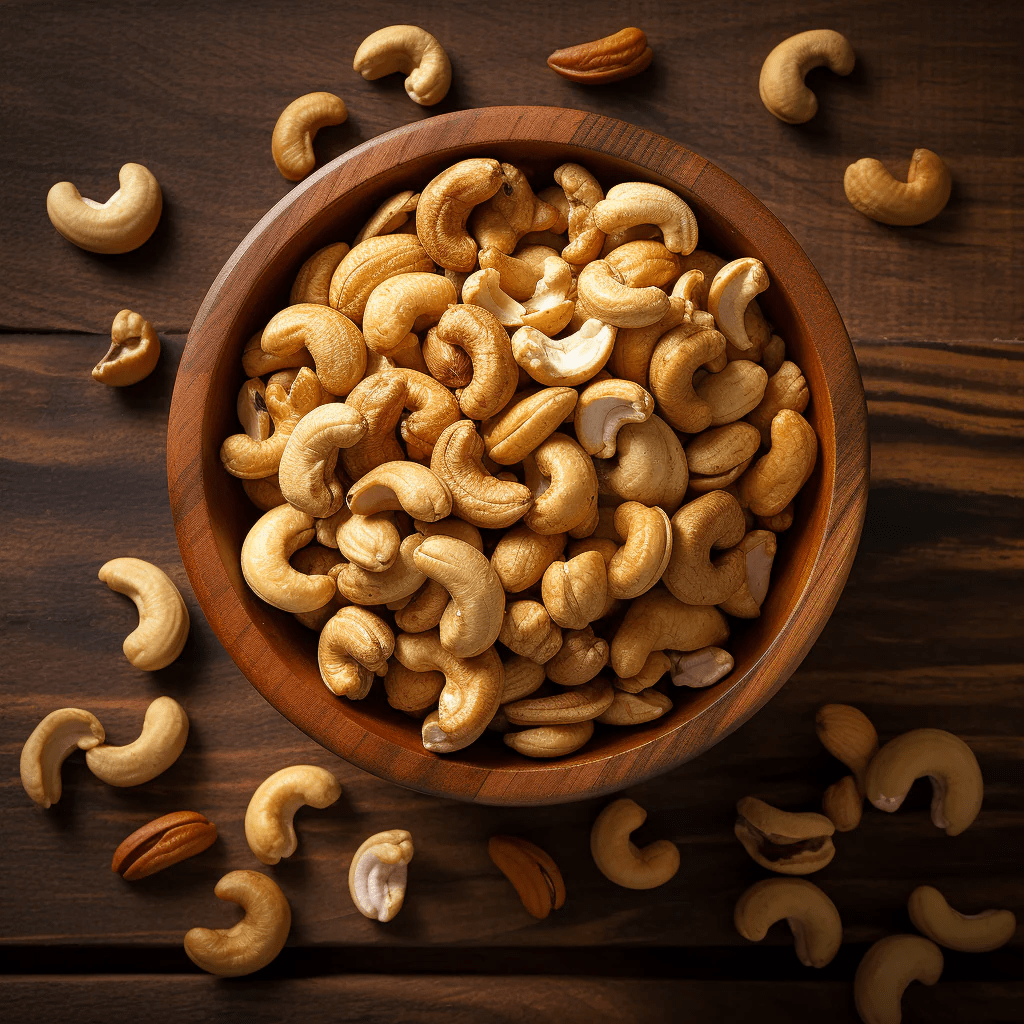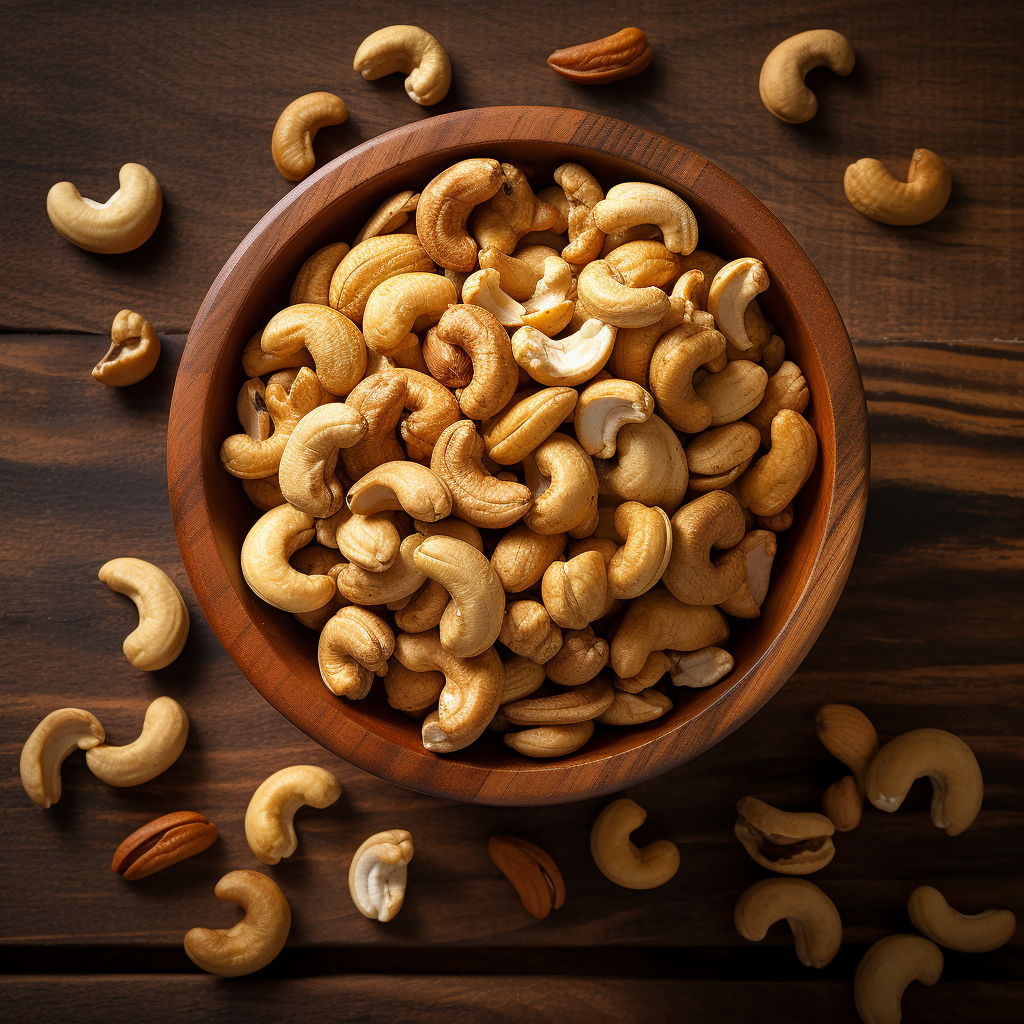Your cart is currently empty!

CASHEW KERNELS: A COMPREHENSIVE GUIDE
CASHEW KERNELS: A COMPREHENSIVE GUIDE

Cashew kernels, commonly known as cashew nuts, are a beloved snack and versatile ingredient in numerous culinary dishes worldwide. Originating from the tropical regions of Brazil, the cashew tree has spread globally, becoming a significant agricultural product in both Africa and Asia. This blog aims to provide a detailed understanding of cashew kernels, their origin, nutritional content, global production data, major producing countries, the benefits of organic cashew nuts in Africa/Nigeria, various grades of cashew kernels, and the characteristics of consumers and companies that purchase these grades.
Origin of Cashew Kernels
The cashew tree (Anacardium occidentale) is native to Brazil. Portuguese explorers introduced it to India and Africa in the 16th century, where it adapted well to the tropical climates. Today, the cashew tree is cultivated in many parts of the world, primarily for its nuts and the apple from which it grows.
Global Production Data
Cashew production is a significant agricultural activity in several countries across Africa and Asia. In 2020, the global production of cashew nuts was approximately 4.4 million metric tons, with Vietnam, India, Ivory Coast and Nigeria leading the way .
Major Producing Countries
Here is a list of major cashew-producing countries, particularly in Africa and Asia, ranked by their production capacity:
- Vietnam: Producing approximately 1.5 million metric tons annually, Vietnam is the largest producer and exporter of cashew nuts globally, with advanced processing facilities and technology.
- India: With an annual production of around 800,000 metric tons, India is one of the earliest adopters of cashew cultivation, known for its extensive plantations.
- Ivory Coast: Leading Africa with about 750,000 metric tons per year, the Ivory Coast is a significant global player.
- Nigeria: Producing around 220,000 metric tons annually, Nigeria is a major contributor to the African cashew industry.
Various Grades of Cashew Kernels
Cashew kernels are classified into various grades based on size, color, and quality. The main grades include:
Broken Grades (B, S, LWP, SWP): These are pieces of cashew nuts, including broken (B), splits (S), large white pieces (LWP), and small white pieces (SWP). These grades are primarily used by the confectionery and baking industries due to their lower cost and suitability for processing.
White Whole Grades (WW-180, WW-210, WW-240, W-320, WW-450): These are whole, white cashew nuts, with W-180 being the largest and most expensive. However, WW240,WW320 and WW450 are the most traded grades of kernels globally due their availability across all producing countries. These grades are popular among consumers for direct consumption and are used by gourmet food companies.
Scorched Whole Grades (SW): These nuts are slightly scorched but still whole. They are cheaper than white whole grades and are used in snack mixes and by manufacturers who value cost over appearance.
Features of Consumers or Companies Purchasing Each Grade
- White Whole Grades: Purchased by high-end retailers, gourmet food companies, and consumers looking for premium quality snacks.
- Scorched Whole Grades: Preferred by snack mix producers and food manufacturers who prioritize cost savings while maintaining quality.
- Broken Grades: Used extensively by the confectionery, baking, and food processing industries, where the appearance of whole nuts is not critical
Facts about Organically Grown Cashew Nuts Nigeria
Organic cashew nuts offer numerous benefits, particularly in Nigeria:
- Healthier Option: Organic cashews nuts are grown without synthetic pesticides or fertilizers, making them a healthier choice for consumers.
- Environmental Sustainability: Organic farming practices promote biodiversity and soil health, contributing to environmental sustainability.
- Economic Benefits: Organic cashew farming can command higher prices in the international market, providing better income for farmers.
Cashew kernels are a versatile and nutritious product with a rich history and significant global market. Understanding the various aspects of the cashew industry, from production and nutritional benefits to the different grades and their consumers, provides valuable insight into this important agricultural sector. Whether you’re a consumer looking for a healthy snack or a business exploring opportunities in the cashew market, this comprehensive guide serves as a foundational resource.
For more information and enquires about cashew kernels kindly contact crete commodities.
Want to start exporting with ease?
